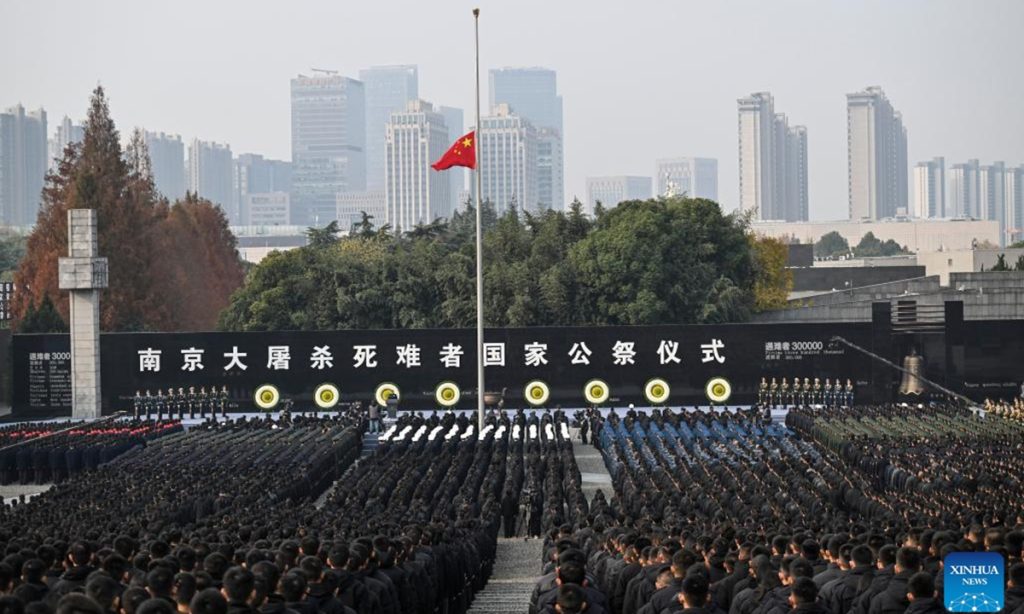China holds 11th national commemoration for victims of Nanjing Massacre

At 10:00 am on Friday, the people of Nanjing, East China's Jiangsu Province, observed a moment of silence, and sirens were heard across the city as China held a memorial ceremony to mourn the 300,000 victims of the Nanjing Massacre. This is the 11th national memorial ceremony for the victims of the Nanjing Massacre.
China's national flag was flown at half-mast in front of the crowd, which included survivors of the massacre, local students and international friends. As the sirens began to blare, drivers in the downtown area stopped their vehicles and honked in unison, while pedestrians paused to observe a moment of silence in memory of the victims.
Over 80 young people recited a declaration of peace, and citizen representatives struck the Bell of Peace. In a poignant symbol of hope, white doves were released, soaring over the square of the Memorial Hall of the Victims of the Nanjing Massacre by Japanese Invaders, according to the Xinhua News Agency.
In 2014, China's top legislature designated December 13 as the national memorial day for the victims of the Nanjing Massacre, which took place during Japanese occupation on December 13, 1937. The Japanese invaders brutally killed approximately 300,000 Chinese civilians and unarmed soldiers in over six weeks, marking one of the most barbaric episodes of World War II.
Since last year's national memorial day, six survivors of the massacre have passed away, leaving only 32 registered survivors still alive today.
The Chinese government has preserved the testimonies of these survivors through written documents and video recordings. In 2015, these records were inscribed on UNESCO's Memory of the World Register, ensuring that this harrowing chapter of history is remembered by future generations, as reported by Xinhua.
The national commemoration for Nanjing Massacre victims serves to remind us to not forget history and to pass on the message of peace to future generations, Da Zhigang, director of the Institute of Northeast Asian Studies at Heilongjiang Provincial Academy of Social Sciences, told the Global Times on Friday.
It is essential to convey an accurate historical narrative to ensure that the facts are recognized in the international community, Da said. This is particularly important in light of certain ultra-right wing factions in Japan, who deny the massacre ever happened, Da added.
The purpose of remembering history is not to perpetuate hatred. Rather, our aim is to learn from history, and such an approach contributes to an objective understanding of history, promotes education for peace and ensures that the right narratives are passed on, Da added.
The former site of the headquarters of Unit 731, the notorious Japanese germ-warfare detachment during World War II in Northeast China's Harbin, was reopened to the public on Friday, and a special exhibition of historical artifacts and documents on the bacterial warfare of the Japanese army was also launched. Since the winter of 2023, the exhibition hall of Evidences of Crimes Committed by Unit 731 of the Japanese Imperial Army has received more than 3.5 million visitor trips, according to Xinhua.